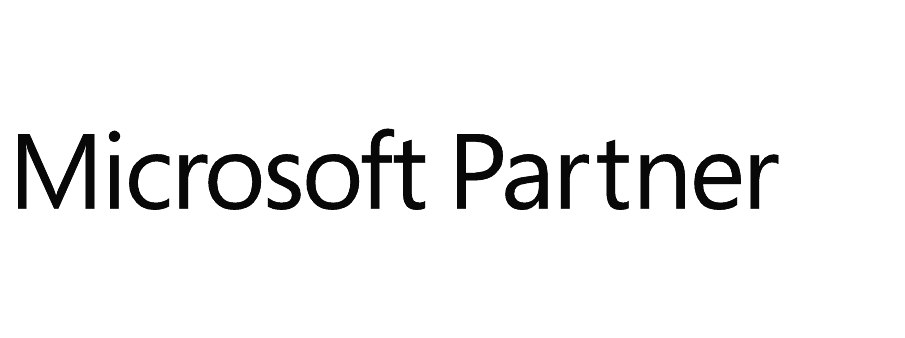

In the era of digital transformation, Microsoft Dynamics 365 has become an indispensable tool for a great number of companies, offering scalable solutions that streamline management, communication and team work. Being able to make the most of the ecosystem may, however, require professional assistance. In response to the needs and expectations of our clients, RSM Poland brings to you comprehensive Microsoft Dynamics 365 support.
Microsoft Dynamics 365 Finance & Operations is a modern, integrated ERP (Enterprise Resource Planning) system that enables businesses to streamline operations, enhance efficiency and make better decisions based on real-time data. The platform is designed for organisations of various sizes and industries – from mid-sized enterprises to global corporations – allowing flexible management of finance, supply chain, production, commerce and human resources.
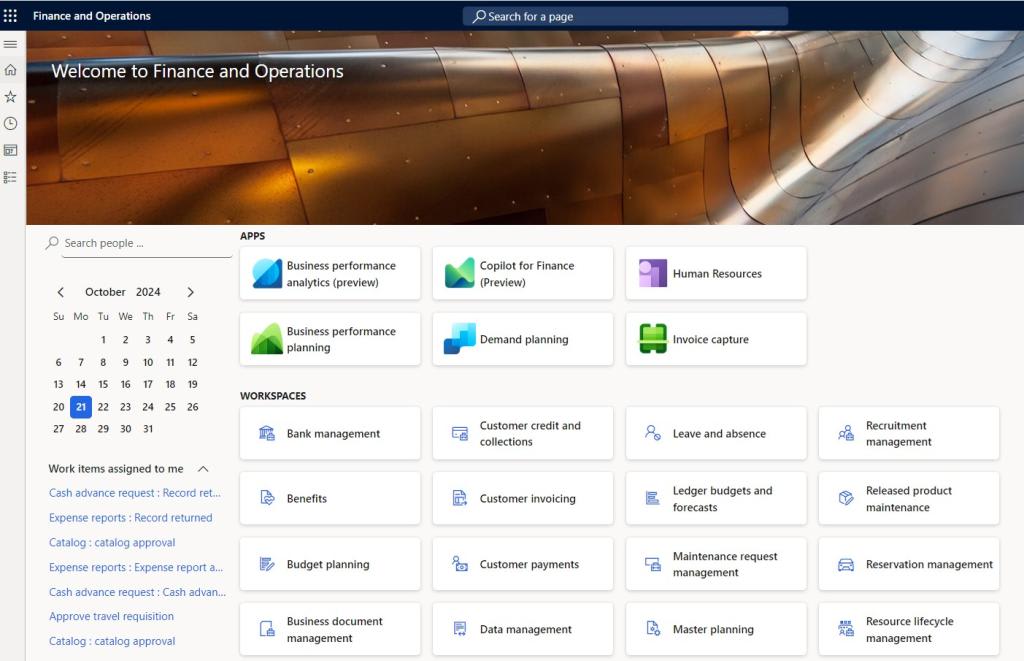
Key benefits of Microsoft Dynamics 365 Finance & Operations:
- Modular architecture – each module addresses a specific business area and can be implemented independently or fully integrated with others. This provides a tailored tool that meets current needs and can be expanded as the organisation grows.
- Full integration and real-time data flow – finance, supply chain and other areas operate on a unified platform, eliminating data silos.
- Flexibility and scalability – Microsoft Azure cloud enables efficient scaling, support for multiple currencies, languages and local regulations.
- Advanced analytics and AI tools – built-in Power BI, Copilot features and predictive analytics support strategic decision-making.
- Security and continuity – regular updates, Azure integration and access control ensure stability and data protection.
Thanks to this architecture, D365 F&O is a future-proof solution – scalable, flexible and integrated with the entire Microsoft ecosystem.
Dynamics 365 Finance & Operations modules
- General ledger – central register of financial transactions, supporting multi-currency, accounting periods, balancing and reporting.
- Accounts payable (Purchase ledger) – supplier liabilities management: payment terms, discounts, invoicing.
- Accounts receivable (Sales ledger) – receivables handling: invoicing, payment tracking, revenue management.
- Tax – automated tax settlements and compliance with local regulations.
Consolidations – financial consolidation across multi-company structures.
These modules form the foundation of financial and accounting management. Proper configuration ensures data consistency, audit transparency and reporting accuracy. Misconfiguration may lead to inconsistencies, reconciliation issues and reliance on manual processes that slow down operations.
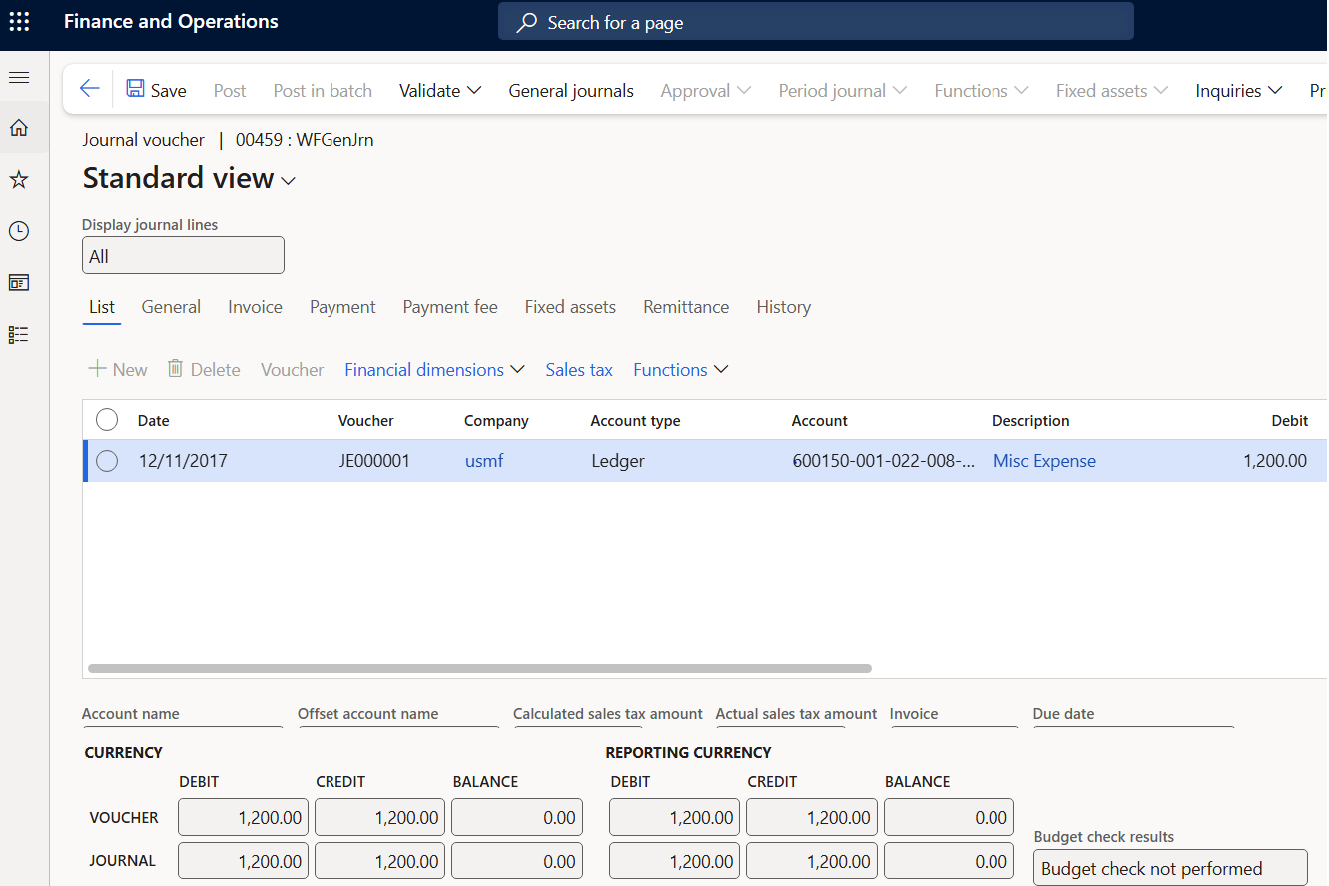
- Cash and bank management – liquidity management: bank accounts, cash flows.
- Credit and collections – credit policies, receivables monitoring, automated collections.
- Budgeting – budget definition and control, variance analysis and scenario planning.
- Fixed assets – asset registry and depreciation, lifecycle management.
- Asset leasing – operating and finance lease management.
- Cost accounting – cost allocation by product, project or department; full and variant cost calculations.
These modules provide real-time financial visibility, cost control, budgeting and asset optimisation. Poor configuration may limit financial flexibility and pose liquidity risks.
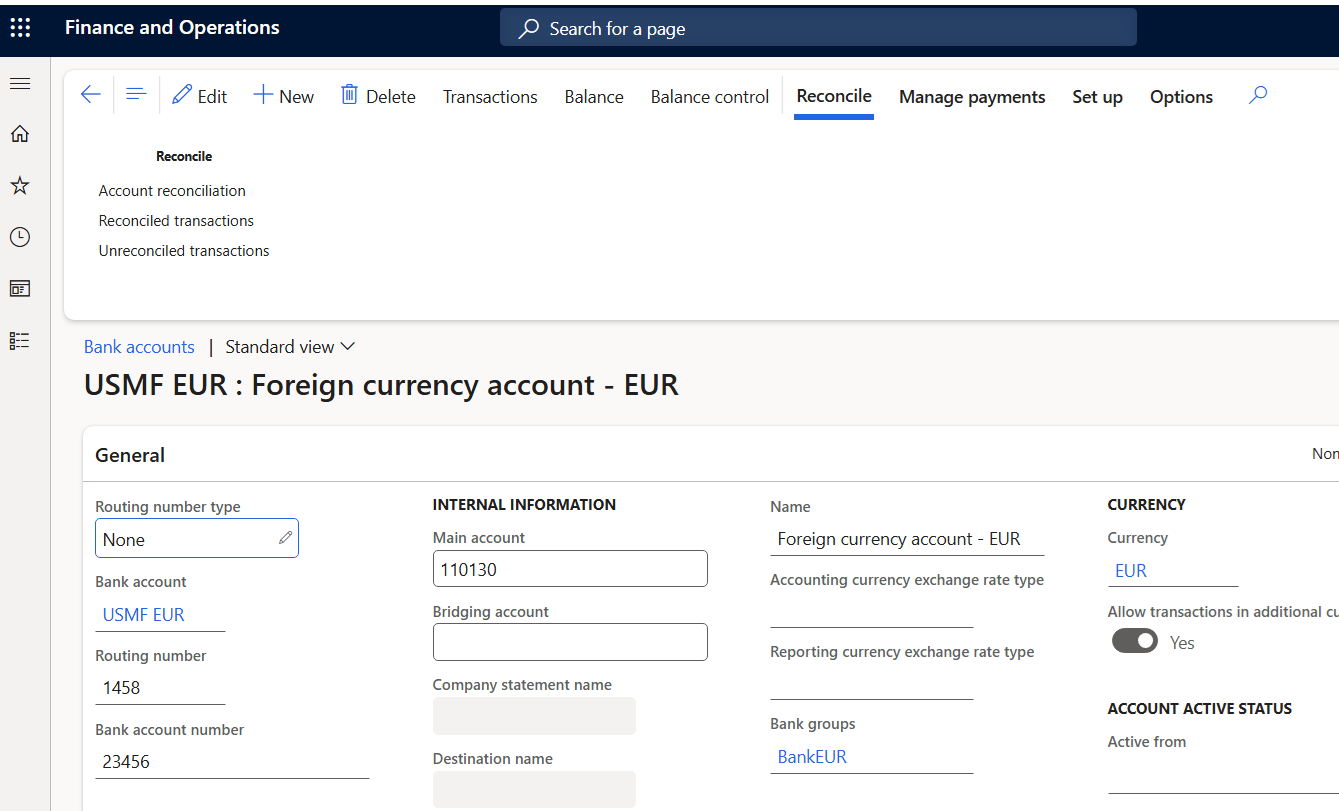
- Product information management (PIM) – central product catalogue, data management, classification and consistency.
- Engineering change management – handling design changes, versioning and approvals.
Operational foundation – without proper PIM setup, inventory, orders and settlements are hard to manage. For technologically complex companies, uncontrolled design changes may cause disruption across the entire process chain.
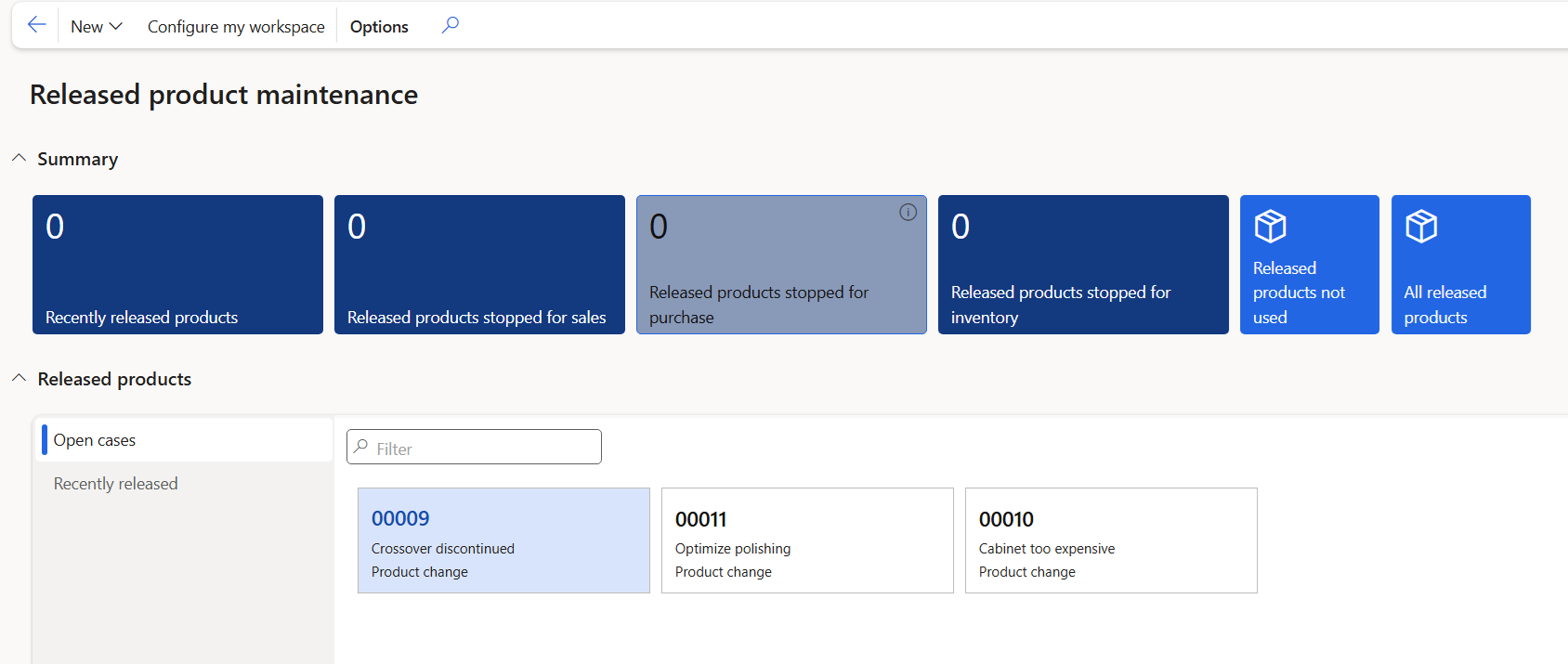
- Procurement and sourcing – purchasing process: from requisition to contracting and supplier selection.
- Landed costs – cost calculation for purchased goods (delivery, customs, etc.).
Essential for cost efficiency and procurement transparency. Lack of control may lead to overpayments, delays and margin losses.
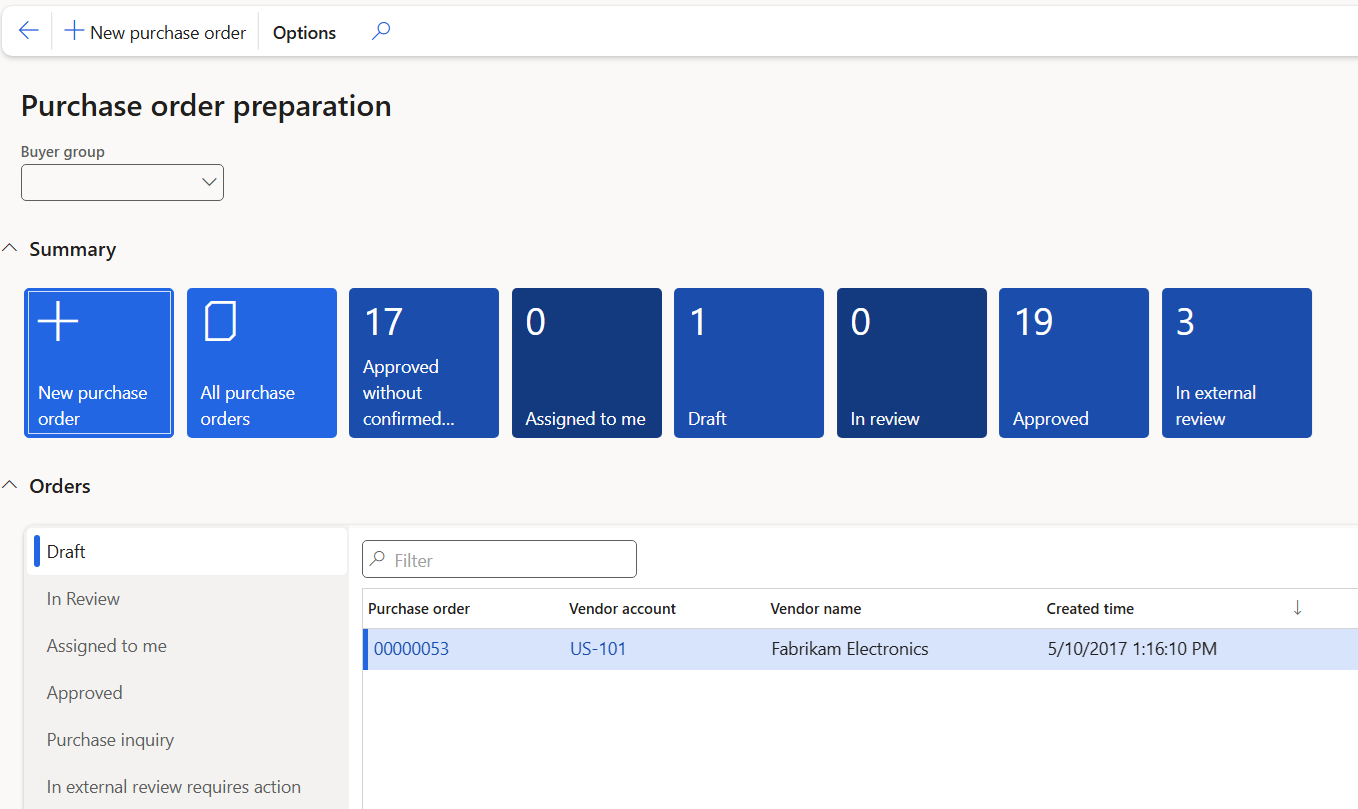
- Inventory management – stock control, availability, warehouse rotation.
- Warehouse management – warehouse operations: locations, flows, optimisation.
- Transportation management – transport planning, delivery optimisation.
- Fleet management – own vehicle fleet management.
These modules ensure operational efficiency. Misconfiguration may cause inventory inconsistencies, delivery delays and operational losses.
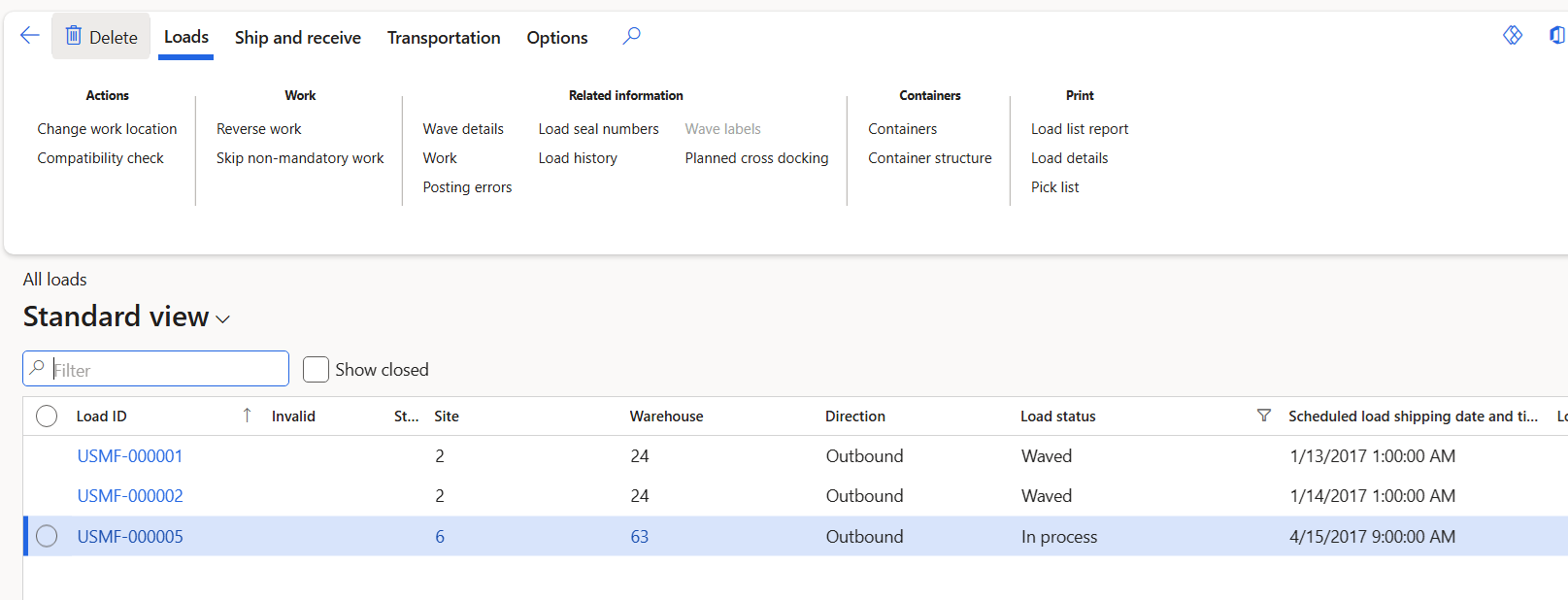
- Master planning – demand forecasting, production scheduling.
- Production control – execution of production plans, resource tracking and fulfilment.
- Time and attendance – production time registration.
- Cost management – production cost tracking and variance analysis.
Key for manufacturing – poor configuration may lead to material shortages, delays, unprofitable production runs and order fulfilment issues.
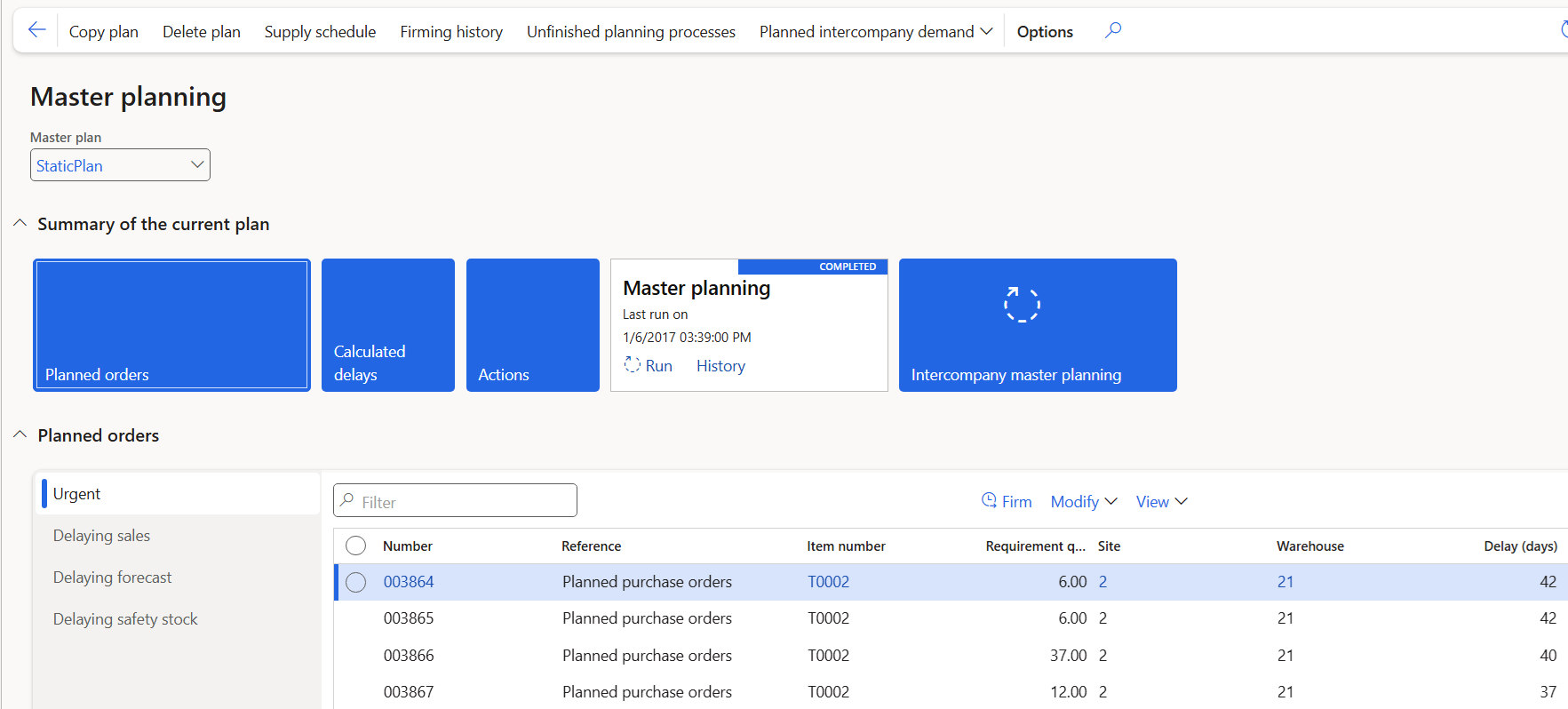
- Sales and marketing – offer, order and promotion management.
- Retail and commerce – retail channel sales (POS), e-commerce.
- Subscription billing – subscription-based payment model handling.
- Pricing management – pricing policy management.
- Rebate management – discounts, promotions, pricing agreements.
Used by sales and retail companies. Incorrect settings may cause pricing errors, poor promotion management and inaccurate subscription billing.
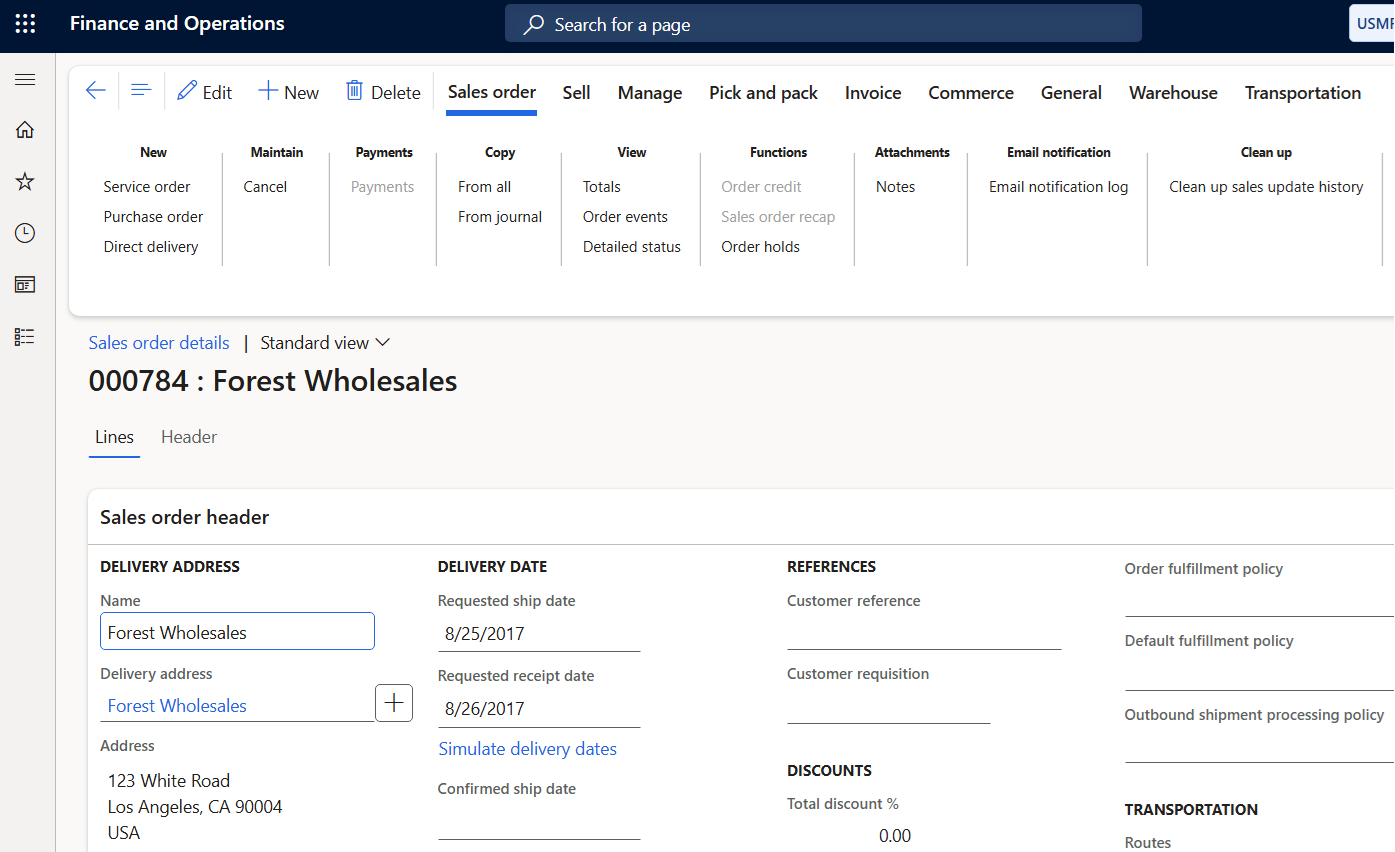
- Project management and accounting (PMA) – contract and project type configuration, resource planning, cost control.
- Service management – SLA agreements, service requests, visit planning, spare parts, cost estimates and service invoicing.
- Asset management – technical asset and maintenance management.
“Mini-ERP” modules for project-based firms (consulting, construction, engineering, professional services). Also crucial for organisations with machinery parks.
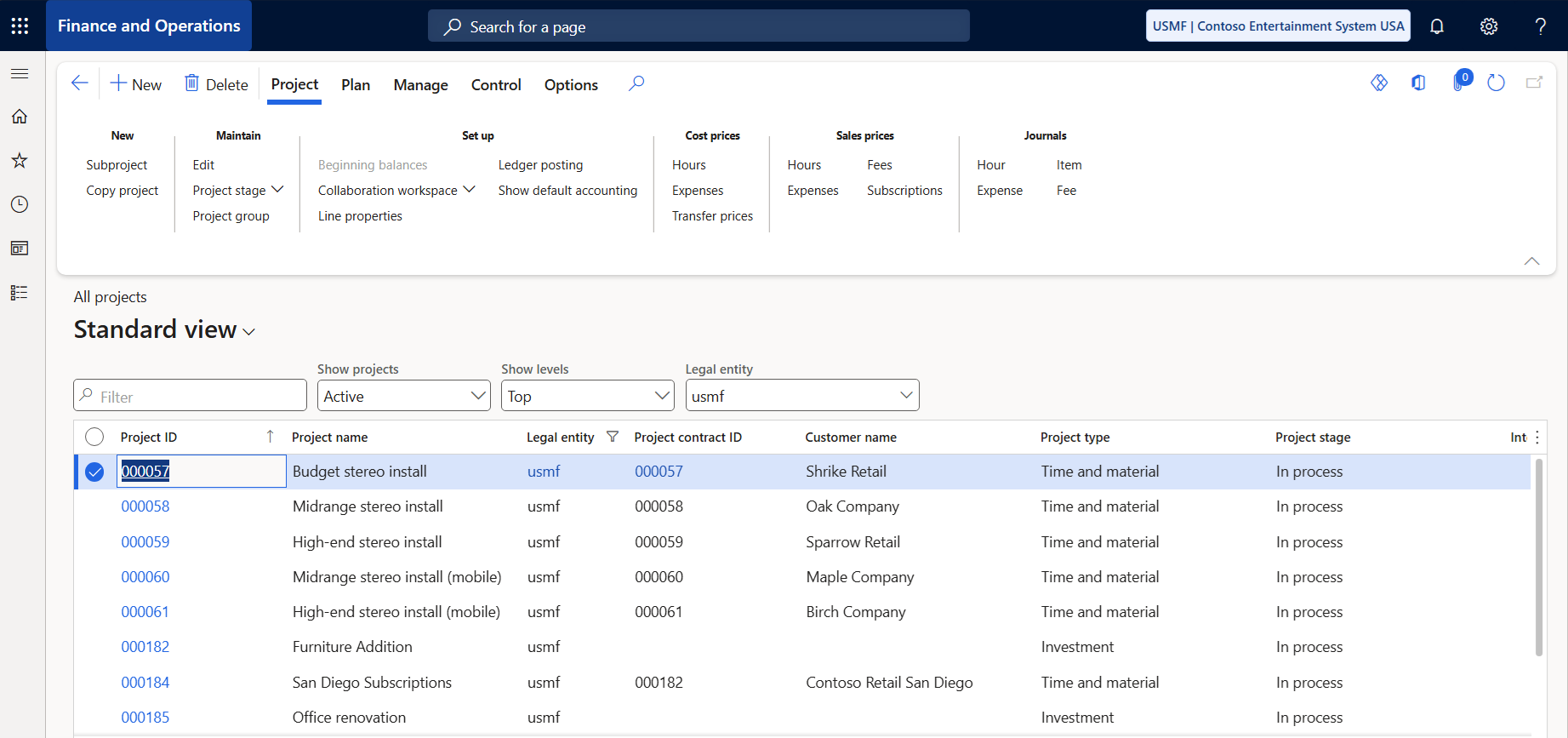
- Human resources – central employee database, organisational structures, positions, competencies, HR processes and compliance.
- Leave and attendance – leave policies, requests, balances, approvals, work schedule integration.
- Expense management – business expense settlement (mobile app, approval flows, project/cost allocation).
- Payroll – payroll calculation, integration with external payroll systems.
Well-configured D365 Finance and Operations HR modules shorten approval cycles, reduce payroll errors and facilitate labour cost reporting. Poor setup risks non-compliance, access issues and incorrect calculations (e.g. production rates).

- Common – user personalisation and work enhancements (views, shortcuts, saved queries).
- Organisation administration – legal entity definition, numbering sequences, business rules, workflows, intercompany configurations.
- System management – security and roles, batch jobs, integrations, electronic reporting, data import/export.
- Audit workbench – audits and audit trails, process compliance, exceptions.
Questionnaires – surveys and questionnaires (e.g. training, quality, supplier evaluation).
These modules form the “backbone” of the application – proper configuration ensures security, performance, numbering and compliance. Errors may result in excessive permissions, batch overloads, data inconsistencies and workflow friction.
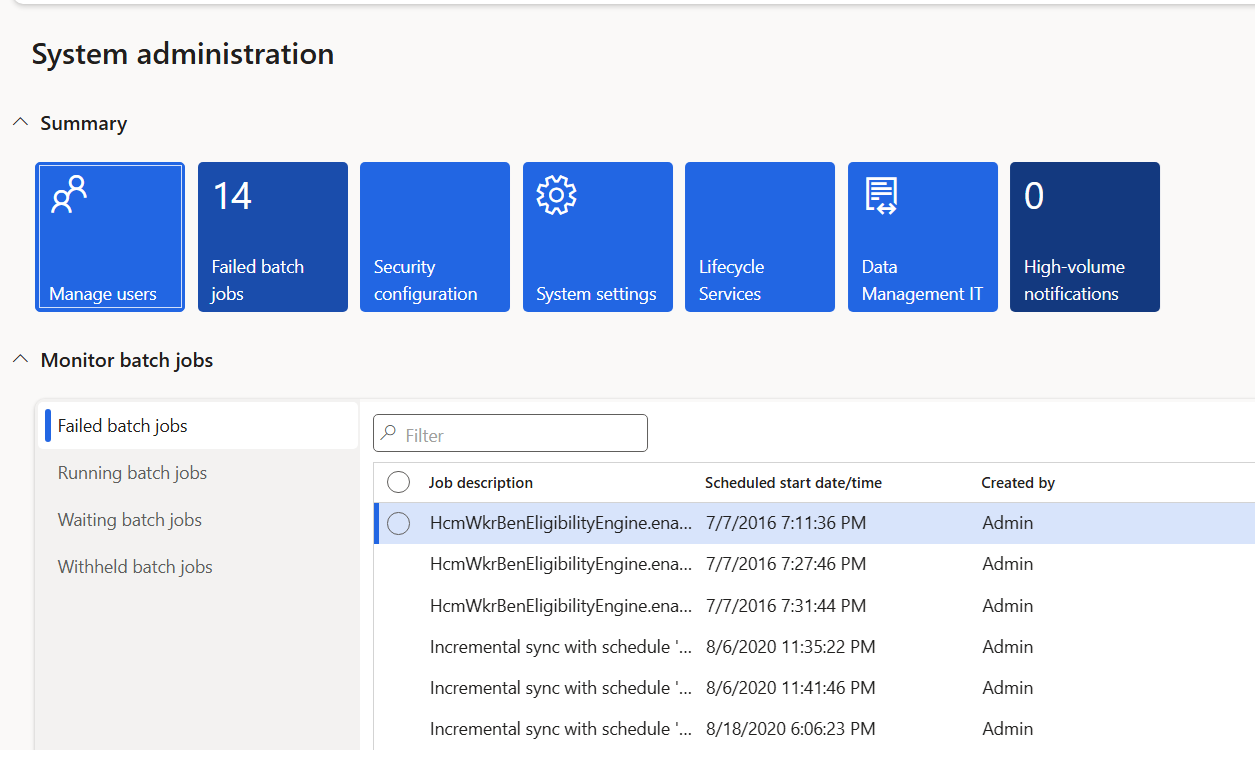
Microsoft Dynamics 365 Finance & Operations - user licensing
Full Users
Full access to Finance and/or SCM functionalities.
Team Members / Activity Users
Limited access: data viewing, approvals, report execution.
Modular licences
Purchase of specific areas only, allowing cost control and tailored licensing.
Helpdesk Support services:
Development support
Cooperation with Microsoft Dynamics 365 often calls for the adjustment of solutions to individual requirements and processes run in the company. That is why our experienced developers offer to build custom applications and tools that are available under Microsoft Dynamics 365, delivering your business optimal functionality.
Data migration
Transition to Microsoft Dynamics 365 may turn out time-consuming and convoluted, especially if there is much data to be transferred. Our professional team makes the transfer of data from other systems to Microsoft Dynamics 365 both smooth and safe, ensuring full information integrity and security.
Systems integration
Using Microsoft Dynamics 365 often entails integration with other systems operated in the company. RSM Poland offers support in designing and implementing integration, enabling untroubled exchange of data between various platforms to optimise business processes and boost work efficiency.
Technical support
Safe and fully operational Microsoft Dynamics 365 environment is key to effective work of the entire company. Our professional team provides you with all-encompassing technical support, helping you troubleshoot any emerging issues and ensuring the continuity of operation within the platform.
Why you should work with us
By choosing RSM Poland to partner with you in the maintenance of Microsoft Dynamics 365, you will gain certainty that what you receive are top-quality services adapted to your special needs. Our expertise and committment equip us with what it takes to face even the boldest challenges relating to the use of Microsoft Dynamics 365 in your company.
Why choose RSM Poland support for Microsoft D365 Finance & Operations?
Implementing and maintaining an ERP system requires expertise, experience and responsiveness to business needs. Our company offers a professional Service Desk that provides not only technical support but also strategic partnership in the ongoing development of your system.
What sets us apart?
- Experienced team – our consultants and developers have years of experience in D365 Finance and Operations projects and hold Microsoft certifications.
- Quick response – we understand the importance of ERP continuity, so we guarantee short response times and effective problem resolution.
- End-to-end support – from resolving current issues, through performance optimisation, to developing new functionalities – we are your partner at every stage.
- Proactive approach – we monitor the system, analyse potential risks and implement best practices to prevent failures before they occur.
- Flexibility and customisation – every company is different, so our support is always tailored to your organisation’s specifics.
By choosing us, you gain a partner who not only reacts to problems but actively supports the development and maximisation of your investment in Dynamics 365 Finance & Operations.
Key experts
Get a 100% free customized demo from a Microsoft expert at RSM Poland
Complete this form and an RSM representative will be in touch.



